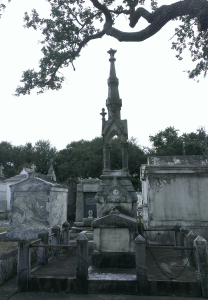I have always been a spooky kid. From a young age, I have been fascinated by the aesthetic of death, the graves and skeletons and ghosts, and later Victorian memorial photography and mourning jewelry. I was peripherally aware of death, of course, my whole life. We all are. It wasn’t until Jack Kevorkian came into the American consciousness that I learned that I had Definite Opinions about capital D DEATH as an absolute, as well as an aesthetic. I found that I strongly believe we all ought to have control over our own mortality, and had my first real experience with how afraid society is to discuss the subject at all. Later, when going through the Diagnosis Cha Cha, I experienced my first profound frustration with peoples’ willingness – and even their ABILITY – to discuss it at all.
Today I attended my first Death Cafe.
You can learn about them here: http://deathcafe.com/ It’s essentially a safe space to talk freely and openly about death, and it’s meant to be a really positive experience. I first found out about them through the Order of the Good Death; I’ve fangirled about Caitlyn Doughty and her Ask a Mortician video series before. I finally worked up the nerve to sign up and attend one; my hesitation was not at all about the subject matter, but about, you know…that whole show up and talk to total strangers. This is what I do here, of course, but in a more one-sided capacity. It was a space to get to know other death-curious people, exchange ideas, and finally -FINALLY – be allowed to talk freely about this whole ‘death’ thing.
We had a wonderful facilitator at the table, who was warm, inclusive, and knowledgeable. There was a young woman who had older parents and didn’t know how to talk to them about death, a wonderful older woman who had the same frustrations with being unable to talk to her loved ones about death, and an artist who works with the dying to design their own crematory urns.
FUCKING AWESOME, RIGHT!?!
…Damn right I got her contact info.
We all spoke for about two hours, about everything from death acceptance to memorial services and keepsakes to death-positive media. I learned about POST/POLST forms (a beefed up Advance Directive that is hot pink and you put it on your fridge so the ambulance folk know what you want). I got a very warm and supportive hug. I taught a delightfully sweary old woman the phrase “lalochezia”. I learned about support groups that aren’t support groups at all for the recently bereaved. We talked about how America doesn’t really have its own death rituals as a culture, and so when it comes to death, we are all at a loss as to what to do. I mean, wen someone dies, you show up with a casserole, but then what? We don’t have societal rules and custom for how to treat the dead, besides paying total strangers to come deal with it and sweep the whole thing under a clinical rug. We’ve become divorced from Death, and it is a damn shame.
I will definitely be attending more of these. It was a pleasant afternoon of drinking tea, eating cookies, and having a chat about things you don’t normally get to talk freely about. I highly recommend you seek one out in your neighborhood. The more we talk about this, the more normal it becomes, and the more healthy our attitude towards death as a culture becomes. And this is a good thing. It helps the dying to not feel so alienated. It helps the grieving to not feel so alone. It helps us all to know what to do, how to have these conversations while we still can.
Knowledge is power, indeed, and by talking about death, we destroy some of its mystique and its terror. We make it normal, and we help each other through impending loss – be it even our own departure. I want to be able to have these conversations with my loved ones, but until that becomes normal and okay, I can have these conversations with strangers.
It’s almost as good.
